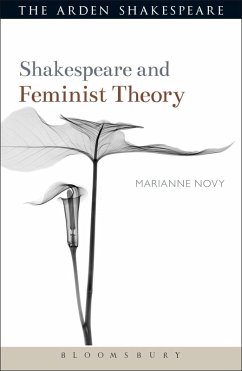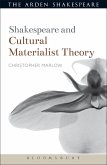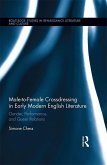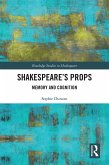Are Shakespeare's plays dramatizations of patriarchy or representations of assertive and eloquent women? Or are they sometimes both? And is it relevant, and if so how, that his women were first played by boys? This book shows how many kinds of feminist theory help analyze the dynamics of Shakespeare's plays. Both feminist theory and the plays deal with issues such as likeness and difference between the sexes, the complexity of relationships between women, the liberating possibilities of desire, what marriage means and how much women can remake it, how women can use and expand their culture's ideas of motherhood and of women's work, and how women can have power through language. This lively exploration of these and related issues is an ideal introduction to the field of feminist readings of Shakespeare.
Bitte wählen Sie Ihr Anliegen aus.
Rechnungen
Retourenschein anfordern
Bestellstatus
Storno









